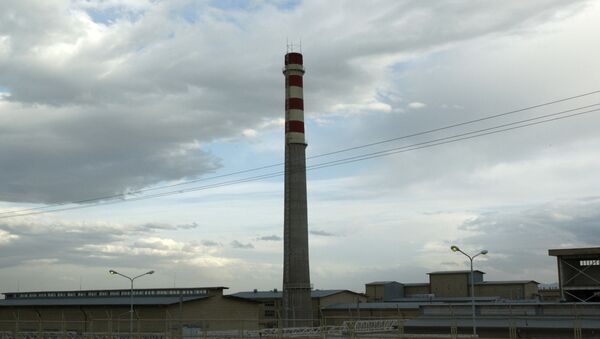The 4th stage of cutting obligations under JCPOA has been worked out, with the Iranian authorities expressing hope that no need will occur to implement it, and that Europe will fulfil its commitments, Iranian Foreign Ministry spokesman Abbas Mousavi told a briefing on Monday.
Washington reinstated a series of harsh economic sanctions against Tehran and its businesses last year, following President Trump’s unilateral 2018 pullout from the 2015 Iran nuclear deal, also known as the Joint Comprehensive Plan of Action - the deal that guaranteed easing of anti-Iran sanctions in exchange for Tehran cutting its nuclear programme in line with the standards explicitly stated in the deal.
Several rounds of such limitations ensued Trump's withdrawal from the landmark nuclear agremeent, with the latest one coming as late as at the end of September, following drone attacks on Saudi Aramco oil facilities, blamed by the US on Iran, that caused major fires and partially disrupted the country's oil production, affecting global oil prices.
A year after the JCPOA withdrawal, Tehran announced its own decision to retaliate the US move that it considered unfair and partially suspend some obligations under the JCPOA deal, also giving the other signatories - France, Germany, the United Kingdom, Russia, China, and the European Union - 60 days to save the deal by resuming oil exports and trade with Iran.
On 7 July as the deadline expired, Iranian Deputy Foreign Minister Seyed Abbas Araghchi announced that his country was ready to start enriching uranium beyond the 3.67 percent level stipulated inby the nuclear accord, adding that Tehran would continue to gradually abandon its nuclear commitments every 60 days. In early September, the International Atomic Energy Agency announced Iran had begun installing advanced centrifuges which would allow it to send the enrichment levels of its uranium stocks upwards.




